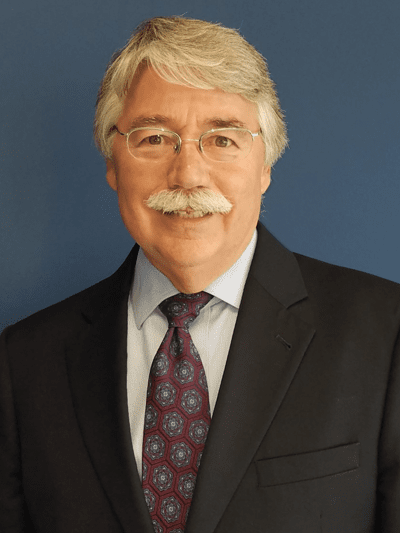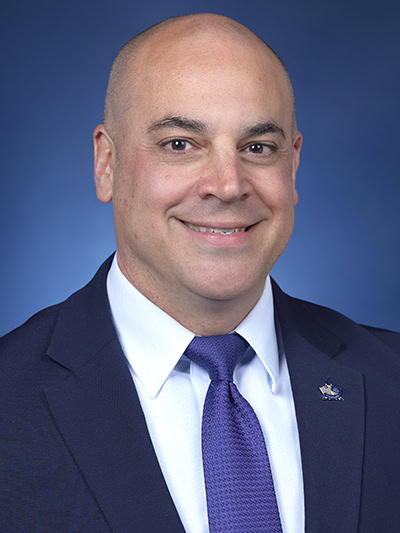-
 Former Colorado Attorney General
Former Colorado Attorney General -
 Former Indiana Attorney General
Former Indiana Attorney General
Originally published on Jan. 20, 2022
As former attorneys general from Colorado and Indiana, we are proud to serve on the board of the Center for State Enforcement of Antitrust and Consumer Protection Laws, Inc. (State Center). This organization was first formed in early 2004 by a dedicated group of former state deputy attorneys general with experience in antitrust and consumer protection cases. The State Center is a bipartisan, nonprofit foundation that provides resources to state enforcers that are not generally available and supports practical training of assistant/deputy attorneys general in the enforcement of consumer protection and antitrust laws by state attorney general offices (AGOs).
Since its inception, the State Center has provided support for investigations and enforcement efforts in broad areas of consumer protection and antitrust law. The State Center has sought to complement and supplement, not to replace or duplicate, the resources and training provided by AGOs and other organizations such as NAAG or the ABA Section of Antitrust Law, focusing on providing resources and educational opportunities not otherwise accessible to most AGOs.
What We Do
As set forth in its bylaws, the State Center’s purpose is:
to provide high quality technical assistance, investigative support, economic expertise, training, education, settlement administration and other similar services to support, improve and enhance the enforcement of the state and federal antitrust and consumer protection laws … to protect members of the public.
The State Center accomplishes its purpose by developing and delivering specialized training and educational programs for state enforcers, by awarding grants for consultants and other experts needed by enforcers, and by providing additional resources to help state enforcers do their work effectively.
For example, State Center grants provide access to economists and other experts whom the states can consult about merger impacts, assessment of potential damages to a state’s residents from a deceptive practice, or assistance in evaluating other market practices. The most frequently awarded grants offer up to 20 hours of consultation from an economist participating on the State Center’s Panel of Economists. This particular grant program enables an AGO to quickly consult with an economist about a market situation or practice at no cost to the state. Such consultations are invaluable for states who need to quickly evaluate a matter before making an enforcement decision and provide access to expertise that most AGOs do not have on staff. A similarly structured consulting program is available for an e-discovery expert. Current members of the State Center’s Panel of Economists and its e-discovery consultant, along with their contact information, is available at the State Center’s website at www.thestatecenter.org.
State Center grants have supported other specialized consulting services, including in the areas of health care and pharmaceutical issues, petroleum industry practices, and cybersecurity. In the past, State Center grants provided critical assistance to multistate groups by funding e-discovery software programs during a time when most states had not yet acquired these programs, as well as innovative pilot programs, such as an assistant attorney general (AAG) fellowship in coordination with NAAG and AGO efforts to combat telemarketing fraud.
While many of its grants are provided for litigation and investigation support, the State Center also awards grants for scholarships and travel stipends for both staff and presenters at conferences it offers and other training opportunities. These programs have ranged from regional consumer protection conferences co-hosted with NAGTRI to highly subject-specific workshops, and meetings with federal enforcers and experts. The regional conferences bring together staff members across AGOs, providing junior AAGs and investigative staff essential training and networking opportunities with counterparts in other states that would otherwise be unavailable.
The State Center seeks to offer timely programs and resources for state enforcers and to be responsive to current needs. In the past two years, the State Center has collaborated with NAGTRI to offer several virtual presentations for state enforcers, covering issues like dark patterns by Internet websites and the development and reliance upon algorithms and machine learning by commercial enterprises. It is currently developing resources to assist states in analyzing the use of algorithms and evaluating their potential impacts on consumers.
The State Center does not engage in any advocacy on social or political issues, nor does it provide grants or other support for organizations for social or political purposes. The State Center explicitly takes a bipartisan outlook in providing assistance through its programs and grant-making activities. This bipartisan approach is reflected in the State Center’s own Board of Directors.
Who We Are
The State Center has a single employee (the executive director) and a volunteer board of directors committed to state enforcement.
- Cynthia Coffman, former Chief Deputy Attorney General and Attorney General for the State of Colorado.
- Trish Conners, former Chief Deputy and Deputy for Enforcement for the Florida Attorney General’s Office and chair of the NAAG Multistate Antitrust Task Force. Trish is now in private practice with Stearns Weaver Miller in Tallahassee, Florida.
- Thomas Greene, former Chief Assistant Attorney General of the Public Rights Division for the California Attorney General’s Office and chair of the NAAG Multistate Antitrust Task Force. Tom now serves as trial counsel for the Antitrust Division of the USDOJ.
- Mihir Kshirsagar, former trial attorney for the New York Attorney General’s Bureau of Internet & Technology. Mihir now serves as the Clinic Lead at Princeton University’s Center for Information Technology Policy.
- Kevin J. O’Connor, former head of the Office of Consumer Protection for the Wisconsin Department of Justice and chair of the NAAG Multistate Antitrust Task Force. Kevin is now in private practice with Godfrey Kahn in Madison, Wisconsin. Kevin was a founding director for the State Center and serves as the chairman of the Board.
- Tam Ormiston, former Chief Policy Deputy Attorney General for the Iowa Attorney General’s Office and Deputy Director of Columbia Law School’s National State Attorneys Program.
- John Pitts, former Deputy Assistant Director for Intergovernmental Affairs at the Consumer Financial Protection Bureau. John now serves as the Global Head of Policy for Plaid, Inc., a financial services technology company.
- Greg Zoeller, former Chief Deputy Attorney General and Attorney General for the State of Indiana. Greg currently serves as the Chairman of the World Trade Center Indianapolis and maintains a private practice focusing on governmental litigation, often serving as settlement counsel.
The organization was guided for the first fifteen years of its existence by the late Steve Houck, former Antitrust Bureau Chief in the New York Attorney General’s Office. Since March 2020, Anne Schneider, former Assistant Attorney General and Antitrust Counsel for the Missouri Attorney General’s Office, has served as the Executive Director.
Our Funding
The State Center’s funding has come primarily from cy pres awards and residual funds remaining from settlements in addition to several individual contributions. Much of its earliest funding was from the settlement of a large antitrust lawsuit. The State Center does not receive corporate funding.
Since its formation, the State Center has received more than $2 million in cy pres funds and donations and has provided $1.4 million in grants for state attorneys general enforcement-related work and training, in addition to the time of its employees and directors in developing such programs and providing other assistance for state enforcement efforts. State Center grants have ranged in size from a few hundred dollars to enable an AAG to attend a special workshop, to tens of thousands of dollars to enable a state to retain a qualified expert in litigation or to provide relevant training programs for larger numbers of state enforcers.
The State Center does not require repayment as a condition of any of the grants it awards.
More information about the State Center and how to support its work is available at its website, www.thestatecenter.org, or by contacting its Executive Director, Anne Schneider, at anne@thestatecenter.org.




